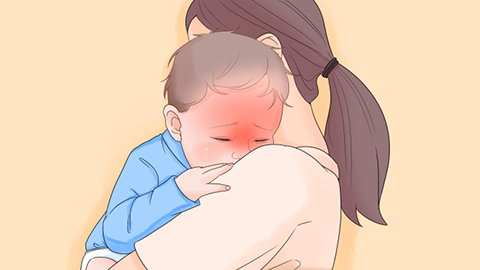The baby has had a fever for three days and it hasn't improved. What should I do?
Generally speaking, fever refers to an elevated body temperature. If a baby has had a fever for three days without improvement, it may be caused by factors such as infantile emergency rash (roseola), influenza (flu), acute tonsillitis, mycoplasma pneumonia, or infectious mononucleosis. It is recommended to seek timely medical attention and follow a doctor's guidance regarding general care and medication treatment. Detailed explanations are as follows:

1. Infantile Emergency Rash (Roseola)
Infantile emergency rash is primarily caused by infection with human herpesvirus type 6 or 7. The virus continuously stimulates the baby's immune system, triggering an immune response that disrupts the function of the body's temperature-regulating center, resulting in persistent fever. Fever typically lasts 3–5 days and may be accompanied by symptoms such as rash, reduced appetite, irritability, and general fatigue. Under a doctor's guidance, medications such as ibuprofen granules, acetaminophen granules, or famciclovir granules may be used for treatment. Encourage the baby to drink plenty of water and rest sufficiently. Once the rash appears, maintain clean skin and prevent scratching.
2. Influenza (Flu)
Influenza is generally caused by infection with the influenza virus. The virus multiplies extensively within the baby's body, continuously stimulating the immune system and triggering inflammatory responses. The inflammatory mediators produced interfere with the normal function of the body's temperature-regulating center. Due to the strong pathogenicity of the influenza virus, fever may persist for several days and is often accompanied by symptoms such as chills, rigors, headache, and fatigue. Under a doctor’s guidance, medications such as oseltamivir phosphate capsules, acetaminophen tablets, or dextromethorphan syrup may be used for treatment.
3. Acute Tonsillitis
Acute tonsillitis is mainly caused by bacterial infection, such as group B hemolytic streptococcus, invading the tonsils. The bacteria multiply extensively within the tonsils, releasing toxins that act as pyrogens, continuously stimulating the immune system and causing persistent inflammation and fever. Symptoms often include sore throat, foreign body sensation in the throat, and difficulty breathing. Under a doctor's guidance, medications such as amoxicillin granules, cefixime dry suspension, or Kehoujian spray may be used to alleviate symptoms.
4. Mycoplasma Pneumonia
Mycoplasma pneumonia is mainly caused by infection with Mycoplasma pneumoniae. The pathogen persists in the baby's lungs, causing inflammatory reactions that elevate the body's temperature set point. As inflammation takes time to resolve, fever may persist for several days and may be accompanied by symptoms such as thick sputum, headache, and sore throat. It is recommended to use medications such as azithromycin syrup, ambroxol oral solution, or acetaminophen effervescent tablets under a doctor's guidance.
5. Infectious Mononucleosis
Infectious mononucleosis is primarily caused by Epstein-Barr virus (EBV) infection. The virus replicates within the baby's lymphocytes, continuously activating the immune system and producing large numbers of immune cells and cytokines. These substances stimulate the body's temperature-regulating center, resulting in persistent fever. Symptoms may include swollen lymph nodes and splenomegaly (enlarged spleen). Under a doctor's guidance, medications such as ibuprofen suspension drops, ganciclovir capsules, or vitamin C effervescent tablets may be used for treatment.
During recovery, parents should ensure the baby gets adequate rest, avoids strenuous physical activity, and follows a light diet to support the healing process.




